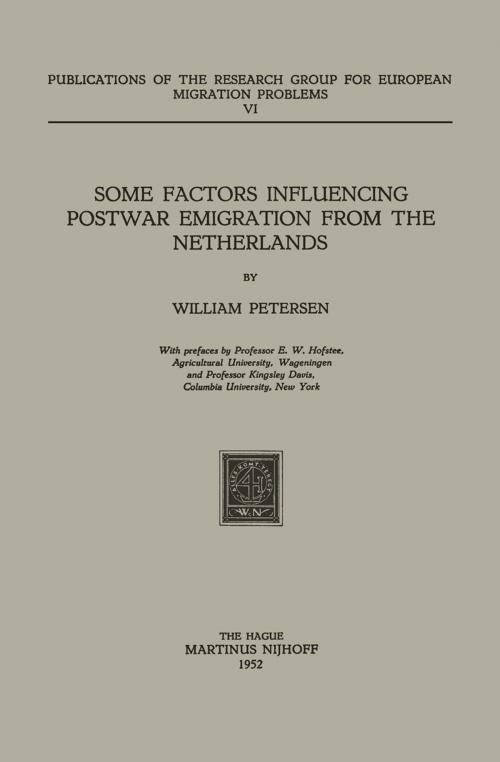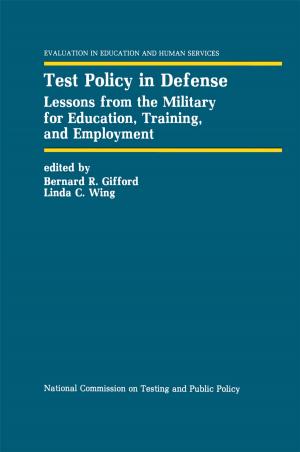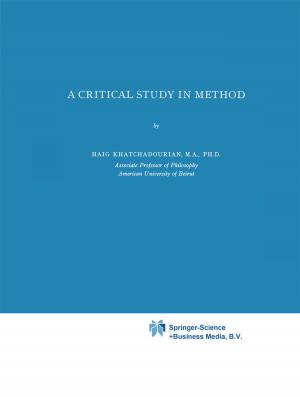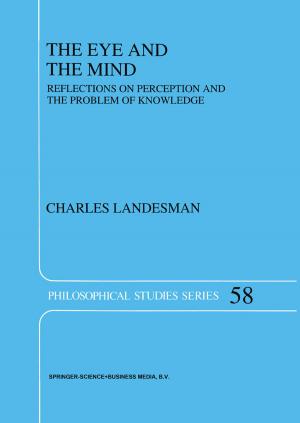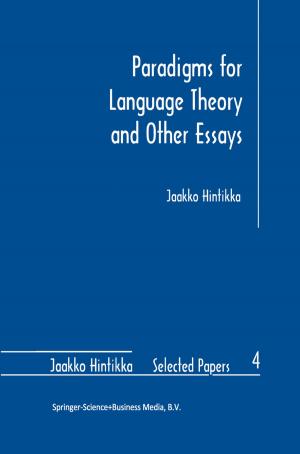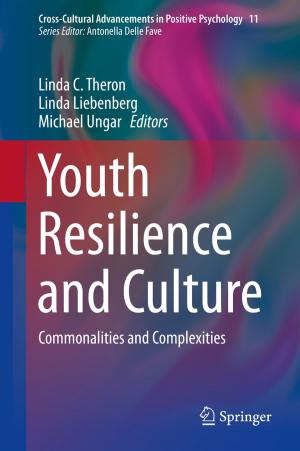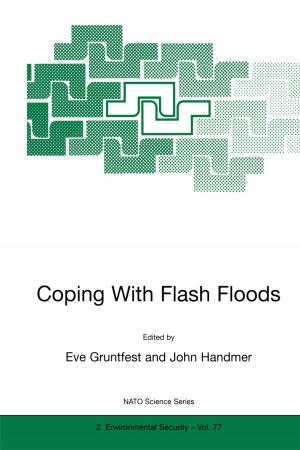| Author: | E.W. Hofstee, Kingsley Davis, W. Petersen | ISBN: | 9789401174978 |
| Publisher: | Springer Netherlands | Publication: | December 6, 2012 |
| Imprint: | Springer | Language: | English |
| Author: | E.W. Hofstee, Kingsley Davis, W. Petersen |
| ISBN: | 9789401174978 |
| Publisher: | Springer Netherlands |
| Publication: | December 6, 2012 |
| Imprint: | Springer |
| Language: | English |
As Mr Petersen points out in this study, since the war there has been a very strong belief in the Netherlands that emigration is necessary. Even those who never before occupied themselves with these matters now speak of the large natural increase, the overpopulation, and the lack of opportunities in the Netherlands. Thousands are considering the possibility of leaving their home land and creating a new existence for themselves overseas. It is a mistake to suppose, however, that these ideas stem from the special demographic and economic conditions that arose in the Netherlands since the war; the opposite is the case. From this point of view, there has never been less reason for emigrating during the past decades than in these postwar years. As far as the demographic situation is concerned, by 1930 the natural increase had decreased markedly as compared with the preceding decades, so that the number of young persons entering the labor market after the war has been relatively small. On the other hand, there have been more openings in industry and in other sectors of the economy than ever before, so that unemploy ment pretty much disappeared. Only in 1951 did it again become at all significant.
As Mr Petersen points out in this study, since the war there has been a very strong belief in the Netherlands that emigration is necessary. Even those who never before occupied themselves with these matters now speak of the large natural increase, the overpopulation, and the lack of opportunities in the Netherlands. Thousands are considering the possibility of leaving their home land and creating a new existence for themselves overseas. It is a mistake to suppose, however, that these ideas stem from the special demographic and economic conditions that arose in the Netherlands since the war; the opposite is the case. From this point of view, there has never been less reason for emigrating during the past decades than in these postwar years. As far as the demographic situation is concerned, by 1930 the natural increase had decreased markedly as compared with the preceding decades, so that the number of young persons entering the labor market after the war has been relatively small. On the other hand, there have been more openings in industry and in other sectors of the economy than ever before, so that unemploy ment pretty much disappeared. Only in 1951 did it again become at all significant.
